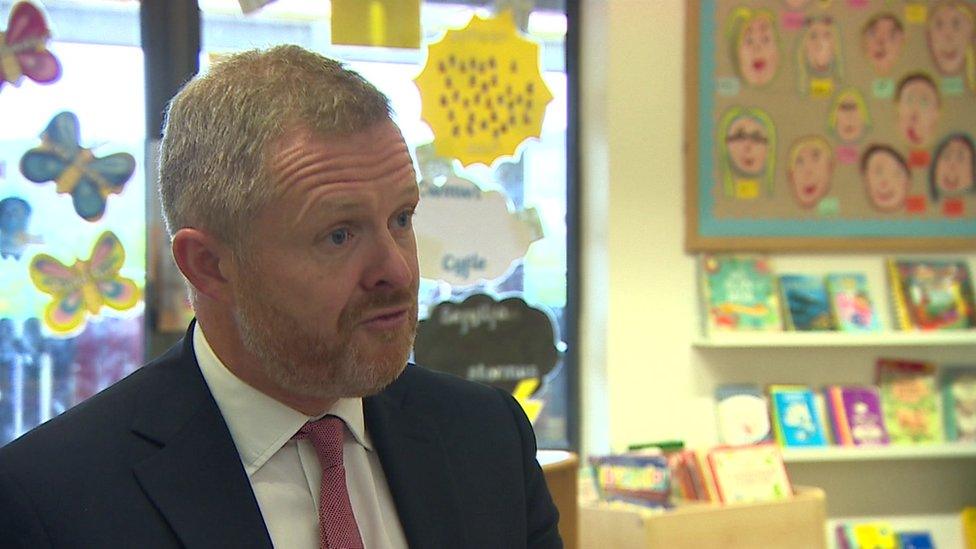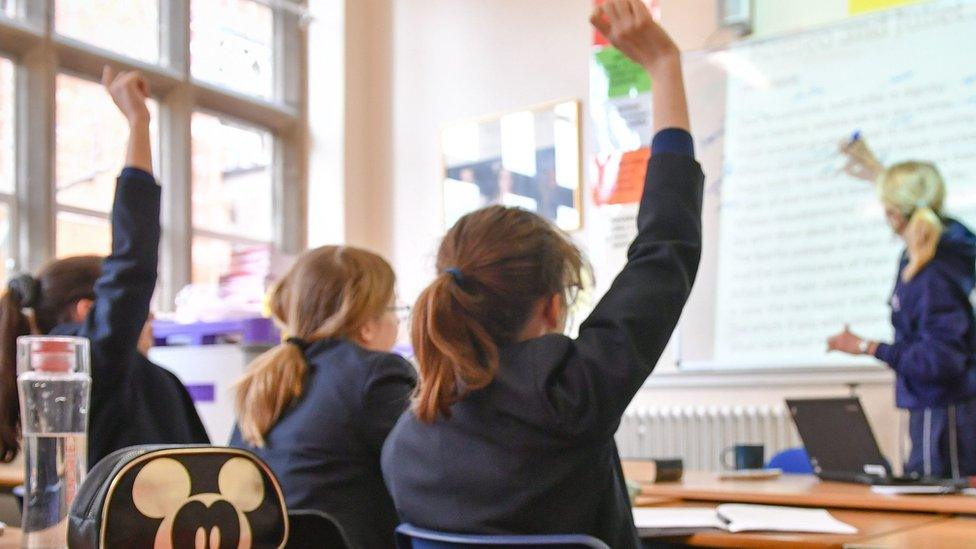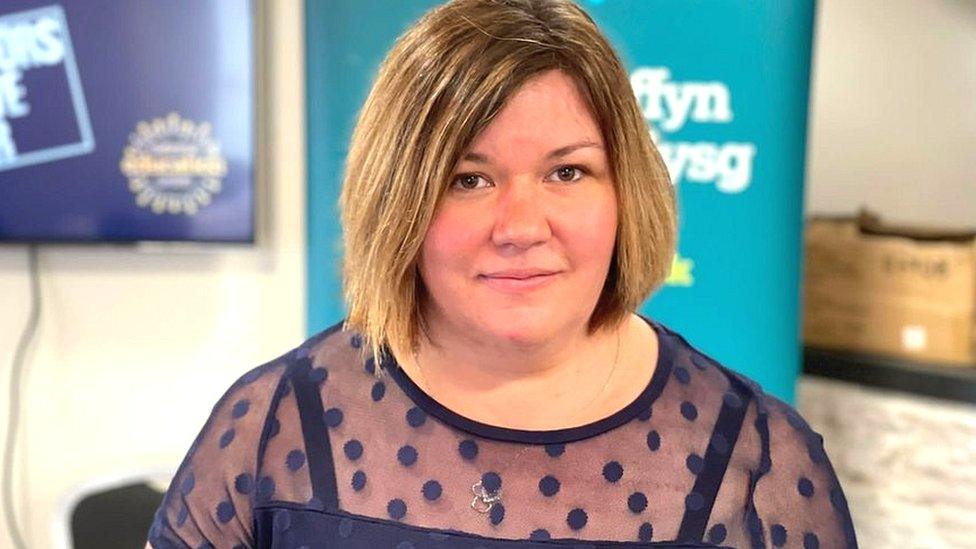School strike Wales: When and why are teachers striking
- Published

The NEU has four days of planned strike action
The first of four days of planned strike action in Welsh schools takes place on Wednesday.
Discussions between unions and the education minister have so far failed to resolve the dispute over staff pay.
Some schools will have to close completely on strike days, while others will see cancelled classes.
Members of the National Education Union (NEU) will strike, while the National Association of Headteachers (NAHT) will begin action short of a strike.
But, with the impact on pupils and their families likely to vary across the country, we have compiled some useful information to help parents and guardians understand the action.
Will my school be affected?
There is a good chance it will be. But the extent of any impact will vary from school to school.
Headteachers will know how many NEU members are part of the staff, but they may not know how many will be striking.
After risk assessments, they are making judgments on whether the school will be able to operate with safe staffing levels.
Some schools will close altogether while others will only be open for some pupils.
Education Minister Jeremy Miles said heads would probably be "erring on the side of caution" because of the difficulties of planning with limited information.
How will I know if my child's class or school is affected?
Schools or councils are letting parents and guardians know through emails or texts.
The education minister said councils were keen to give parents as much notice as possible.
Many will have to make arrangements with employers or arrange other care if children are not in school.
Mr Miles said everyone would be "worried about parents having to take time off to look after their children when they may be losing pay".
Who is striking?
Teachers and support staff signed up with the NEU will be eligible to strike in Wales after a ballot returned a vote in favour.
The union said it had balloted about 13,000 members over the strike action.
Unlike some other unions, more than 50% of NEU members voted, thus crossing the threshold for industrial action.
Teachers in England will also be striking. Other unions are taking part in industrial action in Northern Ireland and Scotland.
Members of the NAHT in Wales, which mainly represents primary school heads, also start industrial action on 1 February.
They say they will limit meetings and calls to core hours and won't make arrangements to cover for staff taking part in industrial action.

Education Minister Jeremy Miles says he is committed to finding a solution with union members
Why are teachers striking?
They are calling for more than the 5% pay uplift offered by the Welsh government, saying their pay has been eroded over many years.
They want an above-inflation rise of around 12% and say it should be fully funded, meaning it should not come from existing school budgets.
Unions are worried about squeezed budgets in education in general and they also have concerns about workload.
The NASUWT and UCAC unions also balloted members but they did not cross the turnout threshold, but could hold another vote.
The Association of School and College Leaders, which mainly represents secondary school heads, has not yet had a formal ballot but it says it is still an option.
Will other staff be covering lessons?
Teaching staff cannot be forced to cover classes of colleagues taking industrial action.
Trade union laws in Wales also mean supply teachers cannot be hired to do the work of striking staff.
It means that even if there is only a handful of NEU members in a school, many pupils could still have to stay at home.
Will my child be taught online?
It depends on the school. Mr Miles said online provision is one of the options open to schools.
Non-striking staff could be asked to provide online lessons to pupils who have to stay home.
That may not be live lessons but could be resources which pupils can access in their own time.
Will there be picket lines outside schools?
Yes, in some cases, according to the NEU.
Could the strikes be cancelled?
This is the first of four planned strike dates - the others are Tuesday 14 February, Wednesday 15 March and Thursday 16 March.
The unions, councils and Welsh government say they want to keep talking to try to resolve the dispute.
The Welsh government has argued it is unable to fund a more generous pay offer, but Mr Miles said he was "absolutely committed" to working with the unions to find a resolution to the dispute.
It has discussed a one-off payment for staff, similar to what's been offered to health workers.
They are also discussing ways to ease workload. But unions said it did not "go anywhere near" meeting their demands.

THE LEARNERS: It's a new term in the beginners' Welsh language class
A SPECIAL SCHOOL: Behind the scenes at a school like no other

- Published15 April

- Published23 January 2023

- Published27 October 2022
